Transformations are constantly unraveling in the modern work landscape. As your business evolves, so should your workspace. The era of aesthetics-focused office design is long past. Now, it’s all about creating environments that enhance productivity, foster collaboration, and reflect the identity of your business. Each industry has its own unique demands, so a one-size-fits-all approach simply won’t suffice.
Here’s how tailored office design can address the specific needs of various industries.
Tech Industry: Agile and Innovative Spaces
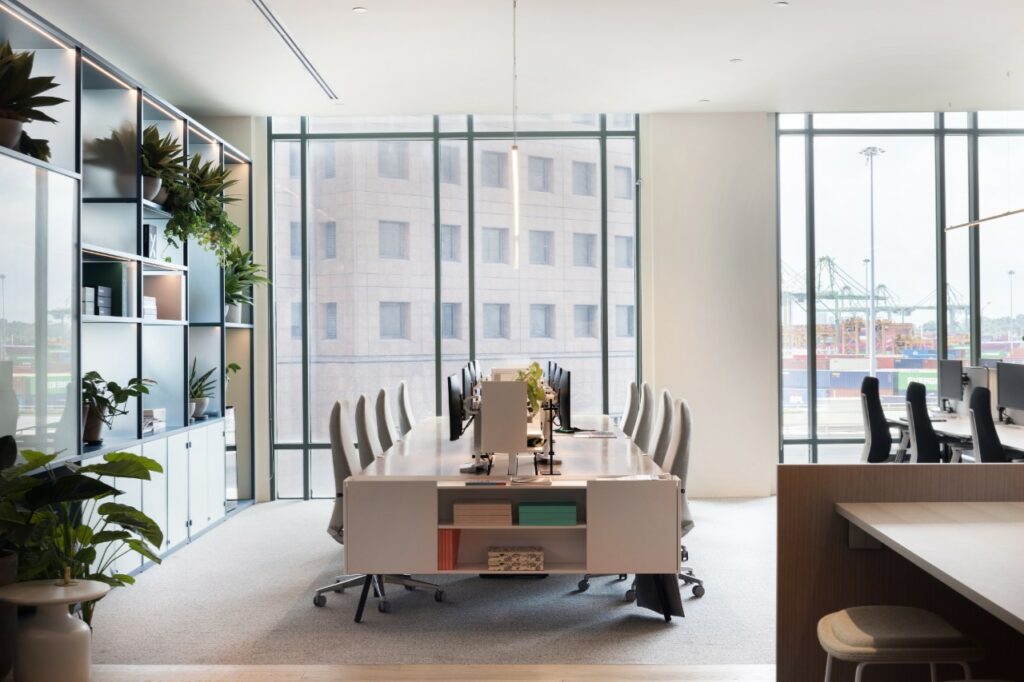
For tech companies, innovation is a main driving force behind every decision – and that includes office design. These spaces need to be highly flexible to support a fast-paced environment where teams frequently collaborate on diverse projects. Open floor layouts allow for quick reconfigurations as projects evolve. Integrating cutting-edge technology, with modular furniture for virtual meeting rooms and smart office systems, can also streamline communication and efficiency. This is especially helpful in hybrid work settings.
Healthcare: Functionality Meets Comfort
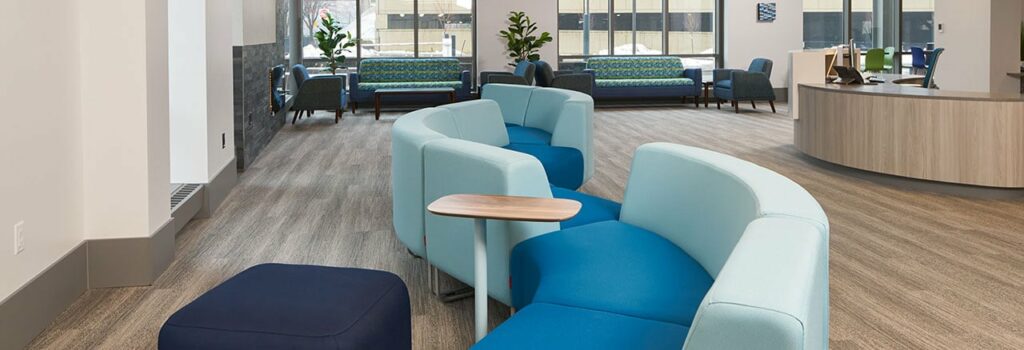
Clinics and medical offices require a design that prioritizes both efficiency, and patient and staff well-being. Clear and intuitive layouts that facilitate smooth workflows are critical to ensure both staff and patients can navigate the space with ease. Additionally, incorporating elements like natural light and calming color schemes, and providing spaces for relaxation such as quiet lounges or break rooms can help create a comforting atmosphere. Ergonomic furniture is another must, as it supports the comfort of healthcare professionals who often spend long hours on their feet.
Creative Industries: Designing For Inspiration
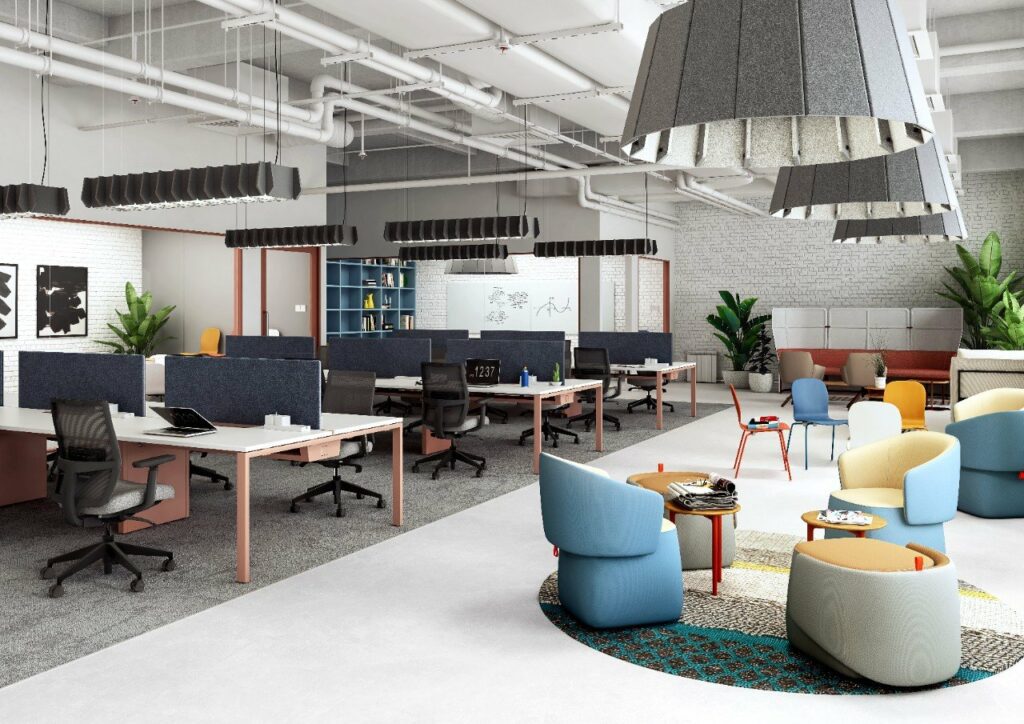
Creative fields, like advertising and design, thrive in environments that inspire and encourage out-of-the-box thinking. These spaces often break from traditional layouts and favor bold, eclectic designs filled with vibrant colors, unique furnishings, and plenty of natural light. Open and flexible areas, including collaborative zones and quiet spaces, allow for both teamwork and individual creativity. The inclusion of art and design elements that resonate with the company’s brand can further stimulate creativity and enhance the overall ambiance of the office. For collaboration, open spaces are key, but it is also important to set up retreats for focused work.
Retail and Hospitality: Customer-Focused Designs
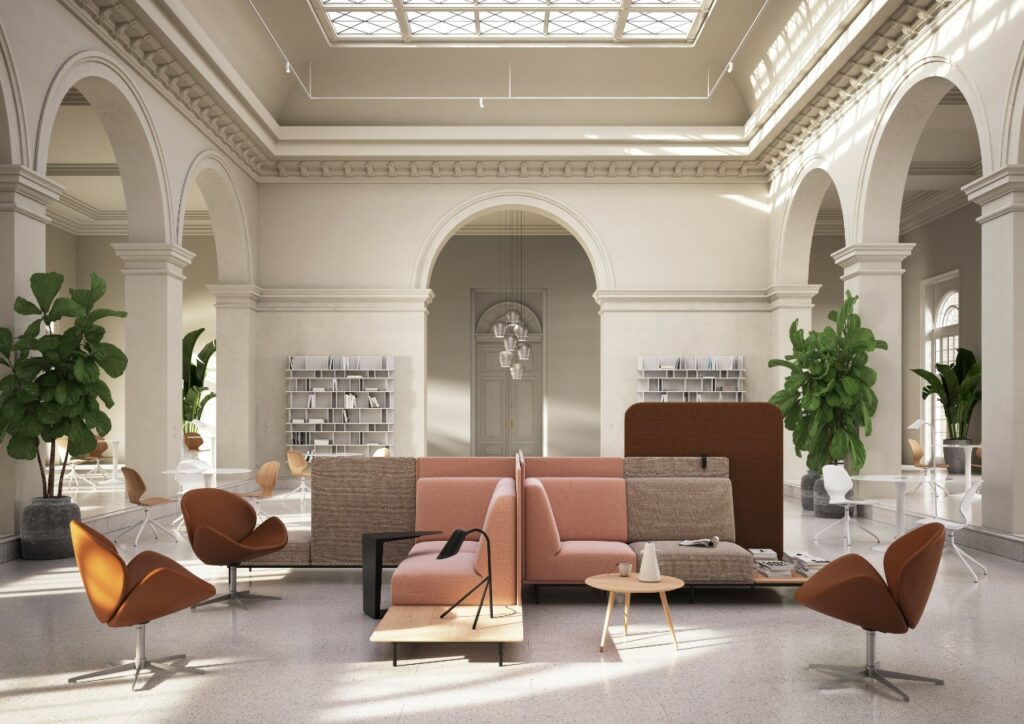
For industries centered on customer experience, the office space must reflect the business’ service-oriented nature. These spaces often serve as the first point of contact for clients, so the design should represent the brand’s identity and values. Comfortable reception areas, aesthetically pleasing meeting rooms, and well-equipped break rooms are all essential office components in these industries. Durability is also essential, especially in high-traffic areas, where materials must withstand wear and tear while maintaining a professional look.
Corporate Offices: Professionalism with a Modern Twist
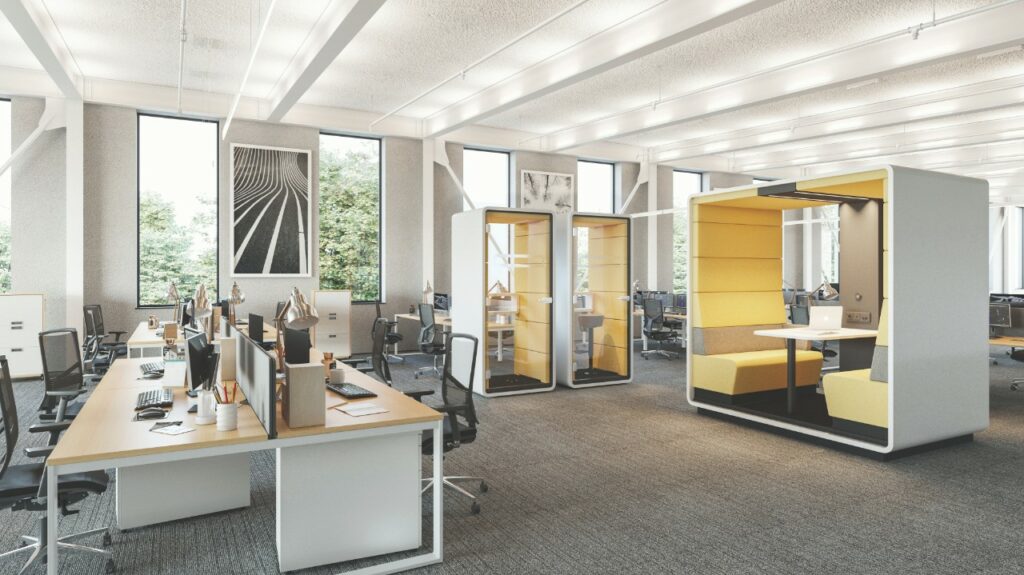
In more traditional corporate settings, such as law firms or financial institutions, the office design must strike a balance between traditional and contemporary needs. While private offices and formal meeting rooms convey professionalism, open areas can be designed to encourage collaboration without sacrificing privacy. High-quality finishes, like glass and metal, can add a touch of elegance and prestige. Furthermore, modern amenities such as quiet zones and wellness rooms can help reduce stress and boost productivity in these high-pressure environments.
Tailoring your office design to the specific needs of your industry creates a workspace that not only looks good but also functions effectively, supports your team, and helps your business thrive. At Three Rivers Business Interiors, we believe that office design should be as unique as your business. Connect with us today and explore how our customized design solutions can help transform your workspace.

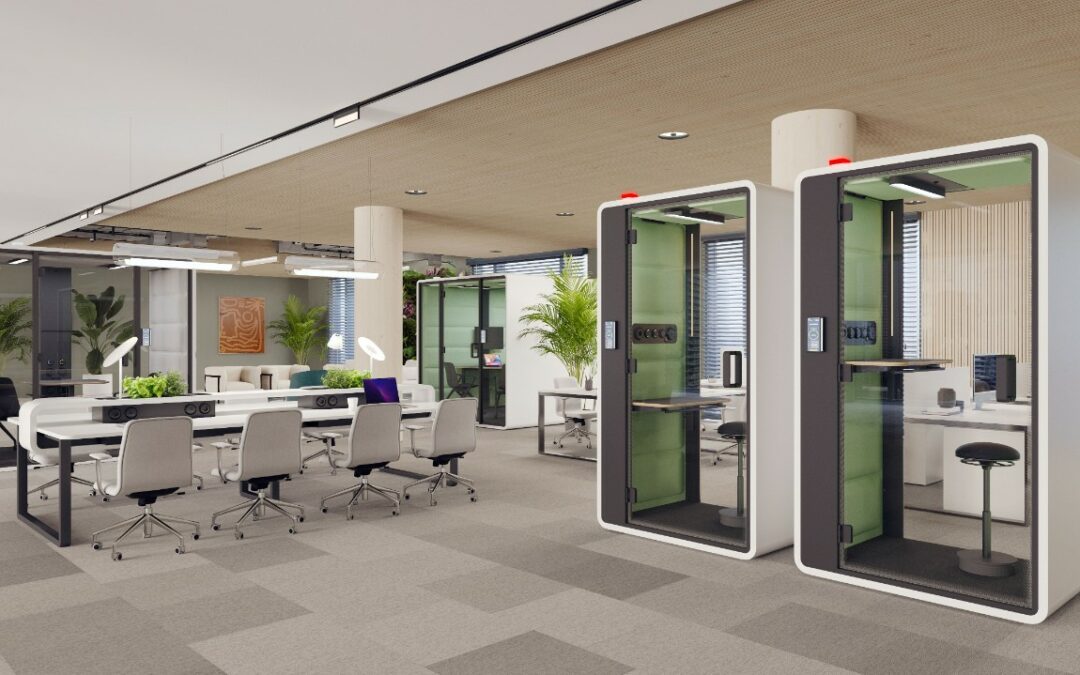
Recent Comments